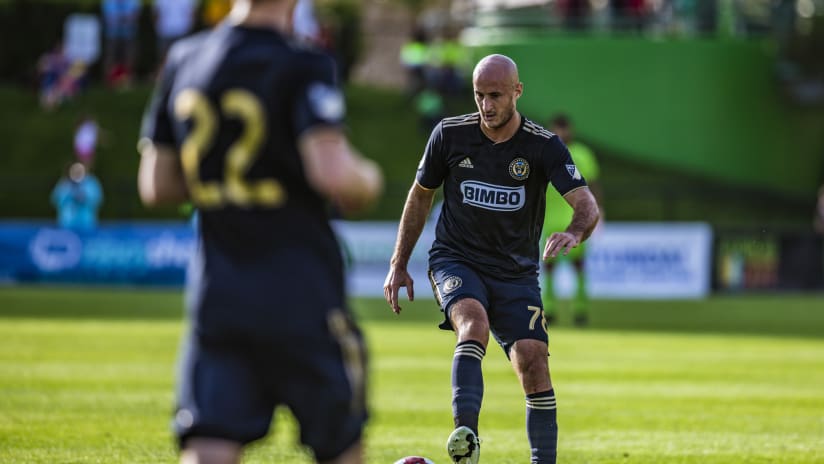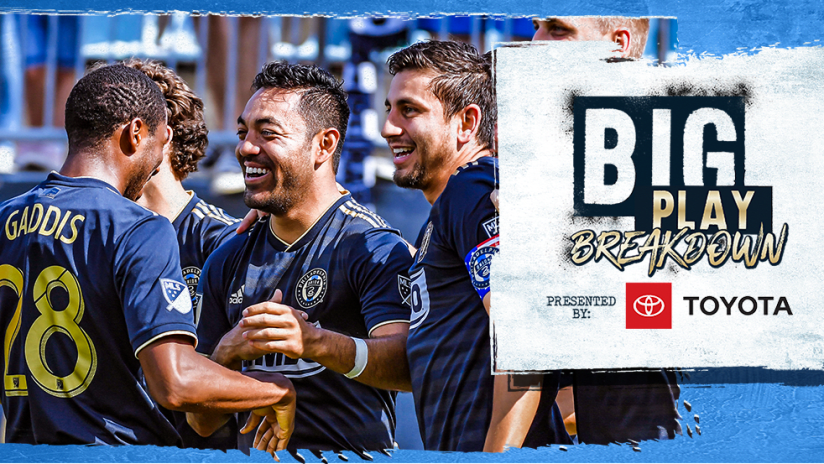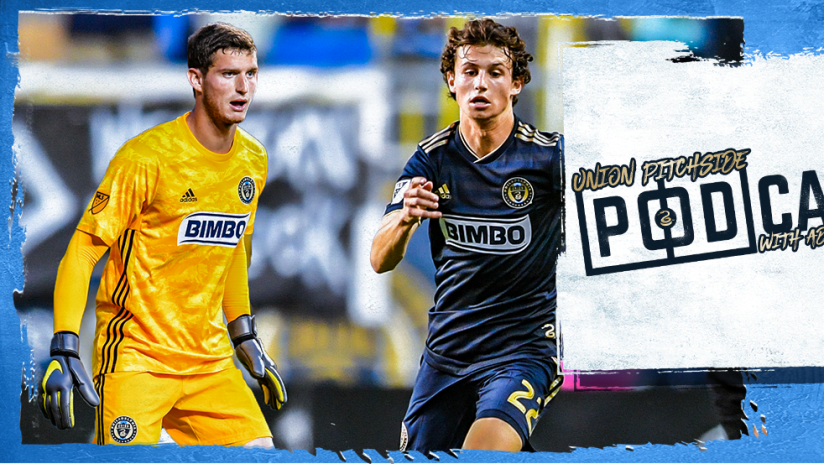“I think they get really up to play us every year,” Ryan Meara said after his New York Red Bulls drew 0-0 with Philadelphia Union earlier this season. Despite its surface meaning, this was no compliment. The Red Bulls been assiduously cultivating a non-rivalry posture with Philadelphia Union for years.
Philadelphians are used to this. Bumping shoulders along the Eastern seaboard with one of the world’s largest cities and the US capitol, the Philly faithful know that respect is something they will always need to fight for. And everyone else knows they are not afraid to do it.
The story of the Union-Red Bulls rivalry, then, is one of a club from New Jersey that believes it deserves respect despite a trophy cabinet that could serve as an homage to the loneliest number and a club from just down the road that has already been to the same number of finals as the its far older rival. Union fans know that teams hailing from the Big Apple need to put on the emperor’s clothes when they face an opponent from Philly; and they know that means those New York clubs have no sleeves to roll up.
And in the end, the facts are clear: Red Bulls big spending and beverage conglomerate support have won them a single Supporters’ Shield -- a fine award, but one rendered less meaningful by Major League Soccer’s unbalanced schedule -- in their long history. They have also reached two finals, losing both.
Meanwhile, despite a far shorter existence, Philadelphia Union have achieved the same number of finals appearances and, admittedly, accumulated the same number of finals losses.
Red Bulls have 12 regular season wins against the Union and six losses. Again: fine. But by no means a record of dominance.
US Open Cup matchups
In US Open Cup play, the two clubs have split four matches 2-2, with half of those going to penalties.
Last season, a showdown at Red Bull Arena saw Sacha Kljestan open the scoring, with Ryan Meara making two brilliant saves on Fafa Picault to preserve the lead. In the 86th minute, Philly finally equalized by playing over New York’s defense to Roland Alberg for a powerful far post finish. In extra time, the Union were the better team, but Meara continued to have Picault’s number in the shootout and Red Bulls moved on, eventually losing, as Philly before them, to Sporting Kansas City in the final.
Two years ago, the Union came from behind at home to knock out Red Bulls behind two Chris Pontius goals, the first of which was one of the best the club has ever constructed. And the year before that, Lloyd Sam scored at the very end of extra time to send the match to extra time and penalties. Sam, Bradley Wright-Phillips, and Fred missed their kicks and Fernando Aristeguieta sent the Union through to the semifinal.
That 2015 run was also one of many peaks in Sebastien Le Toux’s Union career. The man who will soon stand alone in Philadelphia’s Ring of Honor assisted Eric Ayuk’s goal in the quarter final and scored in both the semifinal and final (he also nailed his penalty in the final).
The rivalry
So the question must be asked: Why are Red Bulls so afraid of a rivalry with Philadelphia Union? Why, after the Union outplayed his team in Red Bull Arena in May, did Wright-Phillips argue that, “playing [the Union] is difficult because they want to beat us and it’s a big deal to beat us”?
Is this not the same as saying that playing the Union is difficult because the Red Bulls prefer to stubbornly avoid treating games against Philly with the level of emotional investment they should? And, if so, why would they prefer emotional avoidance to commitment? Why distancing, not digging in?
Because once Red Bulls admits that the Union are a rival, they have to admit something else: Despite their long history and multiple marketing-driven nicknames, there are just as many cups in Talen Energy Stadium as there are in Red Bull Arena.













